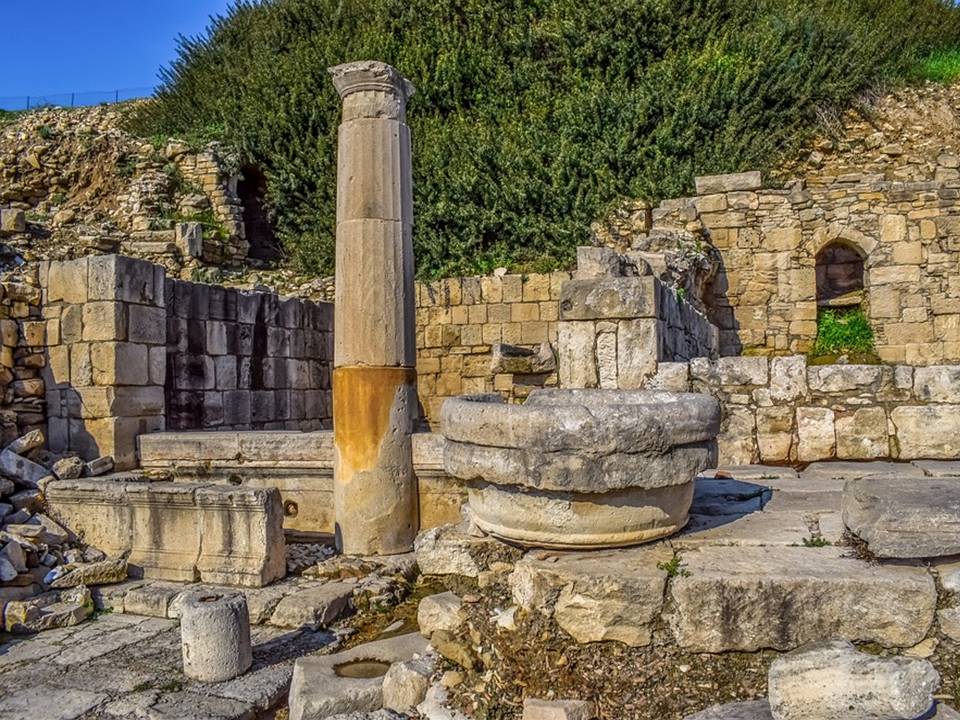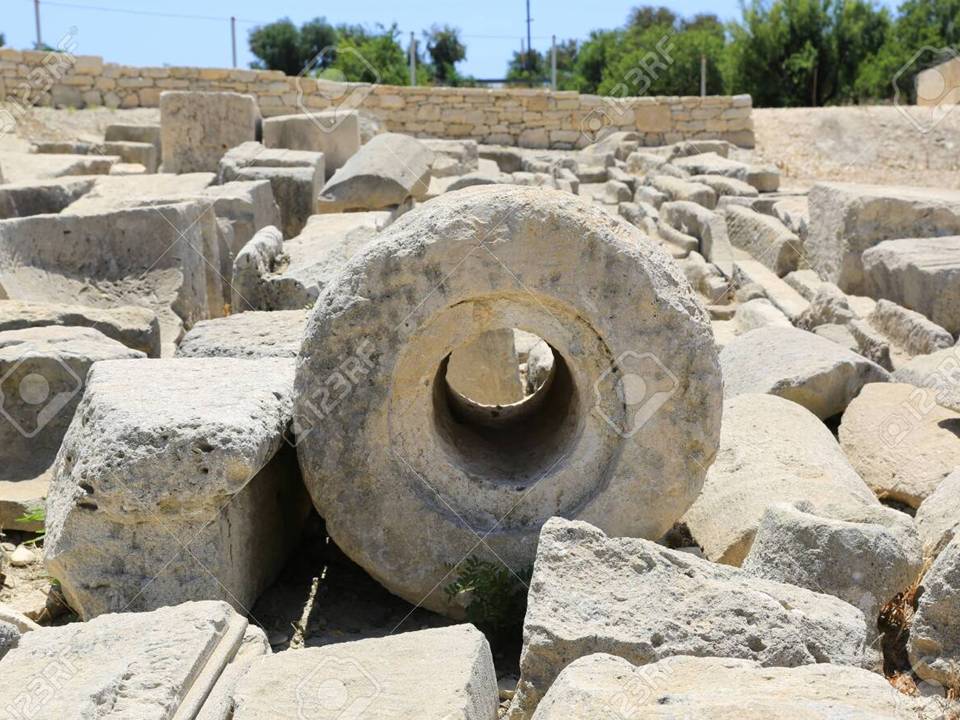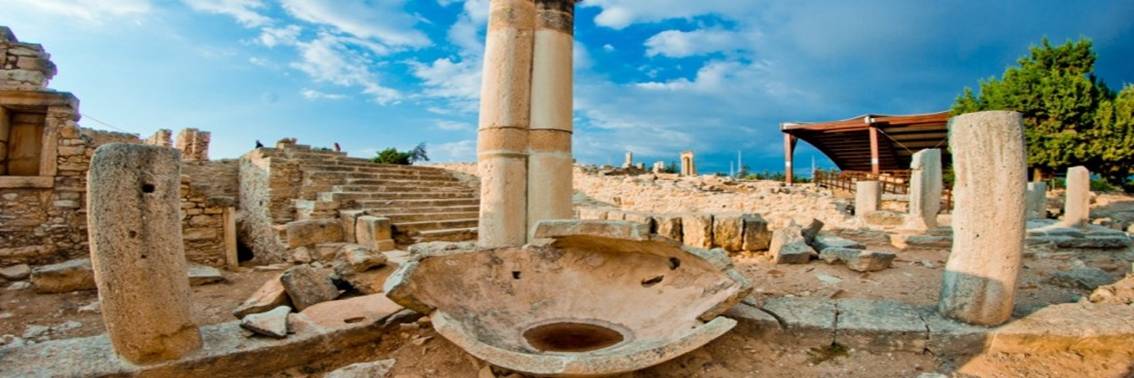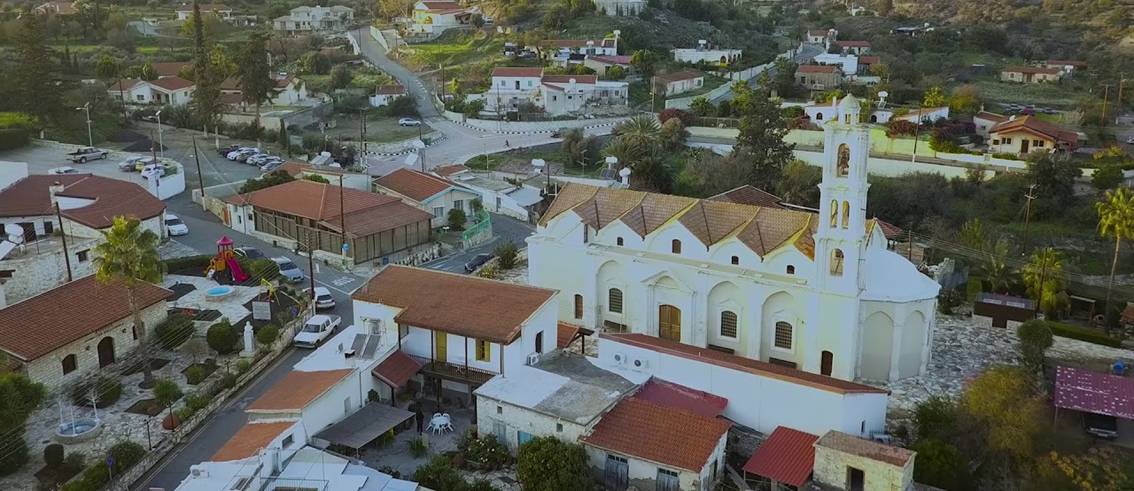Ancient City of Amathus
The ancient city of Amathus, situated on the southern coast of Cyprus near modern-day Limassol, boasts a rich history dating back to around 1100 BCE. Founded by the Mycenaean Greeks, Amathus became one of the most important city-kingdoms on the island. Throughout its existence, the city played a significant role in the political, economic, and religious landscape of ancient Cyprus.
A Crucial Link Between the East and the West
Archaeological evidence reveals that Amathus thrived due to its strategic location and natural resources. The city sat near copper mines, which contributed significantly to its wealth. Trade flourished as Amathus served as a crucial link between the East and the West, facilitating exchanges of goods, ideas, and cultures. Merchants and traders from various regions frequented the city, bringing prosperity and diversity.

A Vital Religious Centre
Amathus also became a vital religious centre, dedicated to the worship of Aphrodite and Adonis. The city’s inhabitants built grand temples and sanctuaries in their honour, drawing pilgrims from across the Mediterranean. These religious structures not only served spiritual purposes but also showcased the city’s architectural prowess and artistic achievements. The temple of Aphrodite, perched on a hill overlooking the sea, stood as a testament to the city’s devotion and craftsmanship.
Amathus Aligned with Egypt or Persia
During the Archaic and Classical periods, Amathus maintained its independence despite external pressures. The city engaged in complex political dynamics with neighbouring city-kingdoms and foreign powers. At times, Amathus aligned itself with Egypt or Persia to safeguard its autonomy and interests. The city’s rulers, known as kings, governed with a combination of military strength and diplomatic skill, ensuring the city’s survival and prosperity.

Greek Architecture and Lifestyle
Amathus reached its zenith during the Hellenistic period, following the conquests of Alexander the Great. The city embraced Hellenistic culture while retaining its unique identity. Public buildings, theatres, and gymnasiums sprang up, reflecting the influence of Greek architecture and lifestyle. The city’s layout evolved, with well-planned streets and sophisticated infrastructure, making it a vibrant urban centre.
The Roman Empire
Roman rule brought further changes to Amathus. The city integrated into the Roman Empire, benefiting from the stability and infrastructure provided by Roman governance. Amathus continued to flourish as a trade hub, with its port facilitating the movement of goods across the Mediterranean. Roman architectural and cultural elements blended seamlessly with the city’s existing heritage, creating a dynamic and cosmopolitan environment.
The Decline of the City
Christianity’s arrival in the 4th century CE marked another significant chapter in Amathus’ history. The city’s population gradually embraced the new faith, leading to the construction of churches and the adaptation of religious practices. However, Amathus also faced challenges during this period. Earthquakes and Arab raids caused substantial damage, contributing to the city’s decline.

A Wealth of Artefacts and Structures
Despite these adversities, Amathus’ legacy endured. Excavations and studies in the modern era have unearthed a wealth of artefacts and structures, shedding light on the city’s storied past. The ruins of Amathus, including the remnants of the temple of Aphrodite, the agora, and the city walls, offer a glimpse into the ancient world. These archaeological treasures provide valuable insights into the daily lives, religious practices, and societal structures of Amathus’ inhabitants.
The Ancient City of Amathus Today
Today, the ancient city of Amathus stands as a testament to the enduring spirit and resilience of its people. Visitors can explore the ruins and imagine the bustling streets, grand temples, and vibrant marketplaces that once defined this remarkable city. Amathus’ history, marked by its strategic importance, cultural richness, and adaptability, continues to captivate and inspire, reminding us of the timeless legacy of ancient civilizations.






